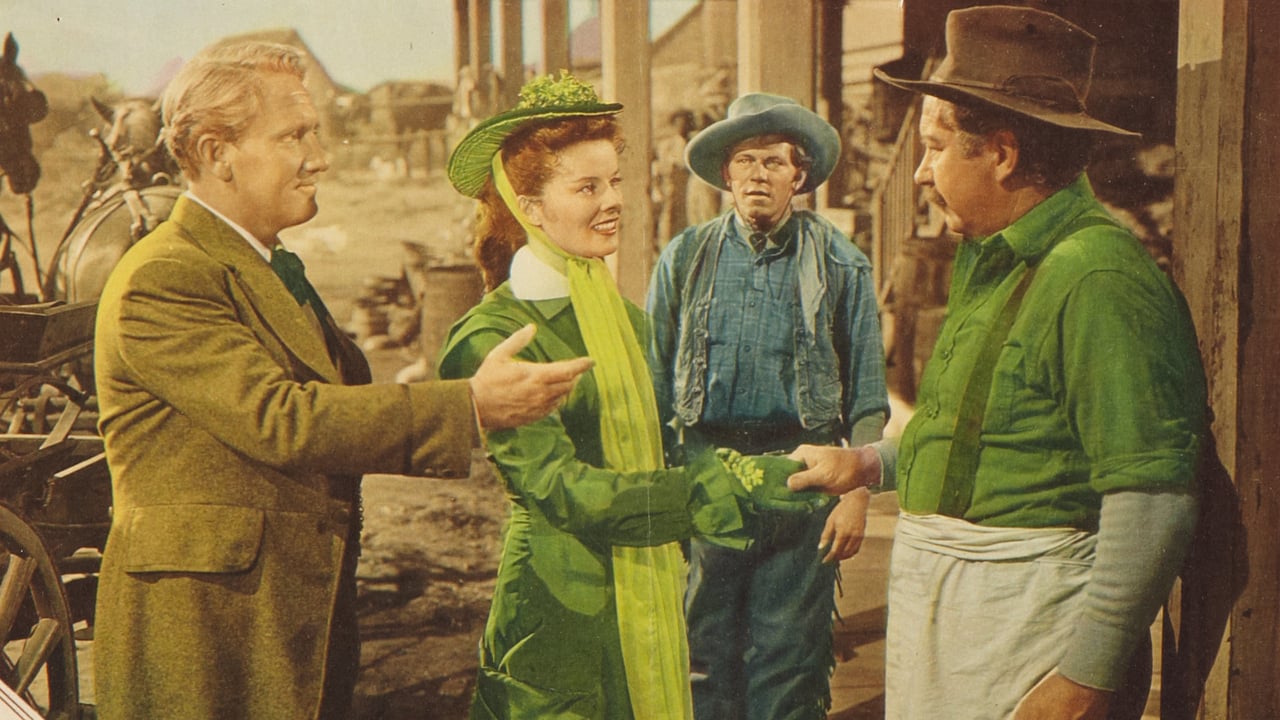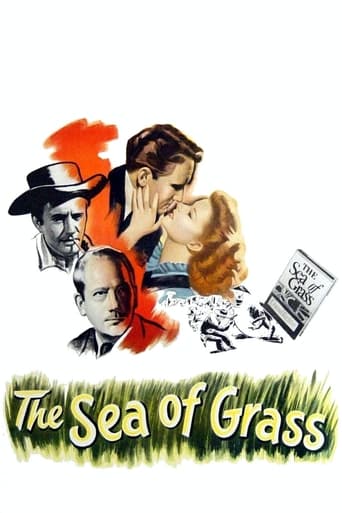



Bad Acting and worse Bad Screenplay
Go in cold, and you're likely to emerge with your blood boiling. This has to be seen to be believed.
View MoreIt really made me laugh, but for some moments I was tearing up because I could relate so much.
View MoreLet me be very fair here, this is not the best movie in my opinion. But, this movie is fun, it has purpose and is very enjoyable to watch.
View MoreI will comment on the clothing worn by Katharine Hepburn. Originally, as the daughter of a wealthy man, I feel that her clothing was quite stylish and evocative of the era. I watched the fashion credits at the beginning of the movie, and was quite pleased. I liked the long dress-suit with the dotted underlining, as well as the white pleated blouse that was oh-so-tailored. Lutie was very stylish, indeed. She always carried herself with dignity, and never lowered herself to dress like the Sunbonnet-Sues of the western town or even like her friend out on the prairie. As a two-time mother who had just given birth, she always kept her tiny waist.Regarding Katharine portraying a mother, I was so surprised and happy to see her with small children. She seemed very natural. This was a very believable role, Katharine as a mother. She was very adoring and loving, very caring. What drove Lutie away was her stubborn jackass husband, but she always loved her children.
View MoreIn my opinion, this was probably the best of the long list of Spencer Tracy-Katharine Hepburn films.The two really get the opportunity and to their credit deliver fine performances in this 1947 film dealing with the settling of land by Homesteaders and the resulting conflict between them and the landowners and the eventual dissolution of a marriage between Hepburn and Tracy.The film also gave us matinée idol's Melvyn Douglas the chance to perform in more of a supporting role and he also delivered as the judge who loved Hepburn and their love produced a tragic end.When Tracy realizes that he can no longer fight the "encroachment" of settlers on the land, the story takes on a different fold with his marriage to Hepburn breaking up. This is also a story of male dominance challenged by a strong-willed Hepburn.Harry Carey is terrific in the role of the sympathetic doctor, friendly to both. In fact, Carey was even better here than in his supporting Oscar nominated performance 8 years before in "Mr. Smith Goes to Washington." There is also ample support given by Robert Walker and Phyllis Thaxter, as the Hepburn-Tracy adult children in the film.The film also takes on the meaning and results of town gossip and scandal and how it ultimately leads to tragic consequences.Another great job by director Elia Kazan.
View MoreElia Kazan regretted making The Sea Of Grass, and it's easy to see why. Instead of a focus on cattlemen vs. homesteaders, we get a marital soap opera stretched out over twenty years between a never-changing stern-faced Spencer Tracy and Katherine Hepburn and in an unusual role as a maternal figure. Kazan specialized in films highlighting great dialog and characterizations, and this film has neither. The social concerns are lost regarding the conflict between the feuding cattlemen and homesteaders without conflict development and plot progression independent of the Tracy/Hepburn soap opera. Within a half hour, one begins to realize this is all there is to the story (based on Conrad Richter's novel). The viewer gets enough stereotyped scenarios predating actual soap operas on television by more than a decade. The rejected wife has an affair, gives birth to a son of questionable birth, is rejected again by her husband, and watches helplessly as her rebellious son lives a ruinous life. Yikes! What nonsense! Hepburn, while more likable than Tracy in the film, is not really a sympathetic character, and the ending is very contrived to say the least. The Tracy and Hepburn teaming overwhelms the story, and it sinks beneath the weight of a burdensome script lacking in the realism, psychological aspects, and characterization found in later Kazan films. Robert Walker and the beautiful Phyllis Thaxter liven things up a little as the adult children, but it's too little too late. Walker only appears on screen for about twenty minutes. Edgar Buchanan and Harry Carey offer able support as Jeff, the cook and Doc Reid respectively. Melvin Douglas tries hard as the homesteader's lawyer and secondary love interest of Hepburn, but he too seems saddled by the plodding nature of the film. The film benefits somewhat from its outdoor scenes, framed in precise period detail. The film is possibly the worst of the nine Tracy and Hepburn pairings with absolutely no chemistry between the stars whatsoever. ** of 4 stars.
View MoreThis movie is tough to love. Partly this is due to the setting of the film (nothing but grasslands as far as the eyes can see), but most of it is because the two main characters are so flawed and unlikable. In some ways this unlikability is good, as too often Hollywood films of the 30s and 40s present people in a "black/white" fashion and people who fall somewhere towards the middle are seldom seen. However, such "gray" characters are tough to bond with or care about, so I can understand why the film makers generally avoided this. Katherine Hepburn seems like a good character through much of the film, but midway through it, she shows a self-centeredness that make it tough to really see the tragedy in her life. Her initially living with the cruel and lawless Tracy is unforgivable, but her having an affair and then leaving her kids (one the bastard) with Tracy and not seeing them for almost 20 years make her very, very tough to like. Tracy, on the other hand, does stay to care for his kids--but in a very self-serving fashion. He is an emotionally constricted and yet over-indulgent father. As a human being, he's a lot worse--killing or nearly killing farmers because he saw the plains as his own personal property. The central message that eventually these farmers contributed to the destruction of the plains is lost--Tracy's not fighting against the farmers due to any love of nature or a desire to preserve the land. No, he's just a greedy rancher that will do ANYTHING to keep the land without fences.Despite the problems with the characters, the film is exquisitely filmed--with some of the more beautiful camera shots I've seen in a long time. This film is worth seeing, but not one I would recommend you rush to see.
View More